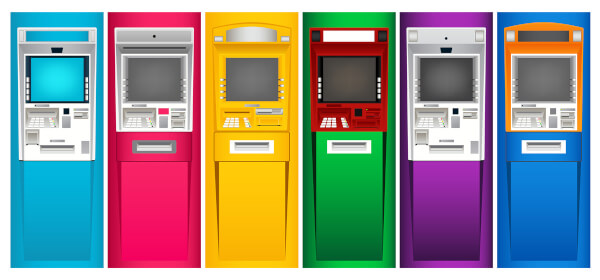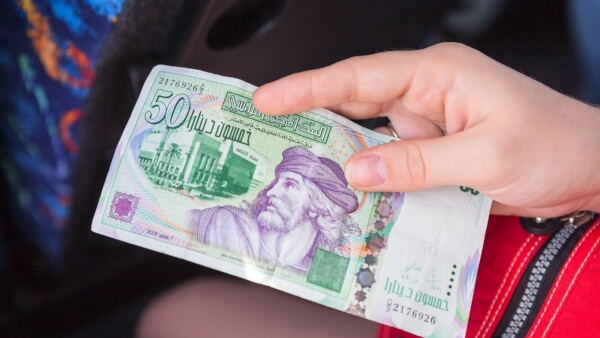Hays travel card review: features, fees and more
Read our Hays travel card review, covering exchange rates, limits, fees and benefits.

Heading abroad? Using your UK-issued credit or debit card is a convenient option – but it can get expensive if you fall foul of unexpected international fees and charges.
We’ve put together a full guide to using your Royal Bank of Scotland (RBS) debit or credit card abroad, touching on everything you need to know. We’ll take a look at fees, exchange rate costs and our top tips for making the most of your holiday spending.
We’ll also show you an alternative for spending abroad – the Wise card from the money services provider Wise. It’s designed for travel, letting you spend in the local currency in 150+ countries worldwide for low, transparent fees* and mid-market exchange rates.
Learn more about the Wise card
You can use your RBS credit card at shops, restaurants and ATMs abroad, just as you would at home.¹ It’s easy to use your credit card overseas, but you may have to pay a foreign transaction fee for international payments.²
You’ll also need to tell RBS your travel plans to ensure the bank doesn’t block your card. You can register your credit card for foreign travel via the RBS mobile app. Simply follow these steps:
Step 1. Select your credit card on the main page and go to “Manage my card”
Step 2. Select “Going abroad” and “Add Trip”
Step 3. Fill out the name of your trip, add the dates of your holiday and choose your travel destination
Step 4. Select “Register trip” to confirm your travel plans with RBS³
Some countries still use cash as their main form of payment, so you may want to take some cash abroad with you. You may also want to pack an extra debit or credit card in case yours is lost or stolen.
There are a few foreign transaction fees for using your RBS credit card abroad. This includes an exchange rate markup on international payments and ATM cash withdrawal fees.
Let’s take a closer look at how much it costs to make payments overseas with most RBS credit cards.
| Fee | Cost |
|---|---|
| RBS foreign transaction fee | 2.75% of the transaction amount² |
| Exchange rate | RBS uses the Visa® or Mastercard® exchange rate for payments in foreign currencies – this can fluctuate depending on when you pay¹ |
| ATM cash withdrawal fee | 3% of the transaction (minimum 3 GBP)⁴ |
The Royal Bank of Scotland’s foreign transaction fee is a charge imposed when you spend in a currency other than GBP. Also known as a non-sterling transaction fee, it covers the bank’s currency conversion costs.²
You won’t have to pay a foreign transaction fee for using your Royal Bank of Scotland Credit Card or Reward Black Credit Card, so these are good options if you regularly travel overseas.²
Whenever you spend in a currency other than GBP, you’ll also incur an exchange rate charge. Although some money services providers like Wise use the mid-market exchange rate, many providers add a markup to international transactions.
This is how they make money – but it means you could end up spending more than expected on holiday.

You can use your RBS debit card to spend abroad. As with your RBS credit card, you should tell your bank before you head overseas. This can prevent your payments from being flagged as fraud while you travel.³
You’ll pay to use your RBS debit card abroad, including a 2.75% non-sterling transaction fee for payments or ATM withdrawals in a currency other than GBP.⁵
You can pay by card anywhere that takes Visa or Mastercard payments, depending on your card type. However, you may still want to take some cash abroad to cover charges like hotel tips or emergency payments.
Unlike in the UK, you’ll pay additional fees and charges for using your RBS card abroad, including currency conversion costs.
Let’s take a closer look at how much it costs to make foreign payments with RBS.
We’ve already touched on exchange rate fees – but exactly how much does it cost to use your RBS card abroad?
RBS cards use the Mastercard or Visa exchange rate for foreign payments. These rates can fluctuate depending on when you make your transaction, meaning you may not know exactly how much it’ll cost to spend in a different currency.¹
RBS has an online currency calculator to help you estimate your exchange rate fees. For example, spending 113.84 EUR with your Visa card will cost 100 GBP, with an exchange rate of 1 GBP = 1.1384 EUR (as of 20 August 2024 at 11:47 am).
This rate is 3.19% above the European Central Bank (ECB) reference rate. You’ll also pay a 2.68 GBP non-sterling transaction fee to RBS.⁶
Every time you spend abroad with your RBS card, you’ll incur a foreign transaction fee. This includes ATM withdrawals, online payments or in-store transactions – and it covers the bank’s processing and currency conversion costs.
This is typically set at 2.75% of your transaction for most RBS credit and debit cards. However, you may be able to avoid this fee with certain cards and accounts.
For example, you won’t pay a non-sterling transaction fee for using your Reward Silver or Reward Platinum debit cards abroad.⁵
RBS charges a non-sterling transaction fee if you want to withdraw money from an ATM abroad. This is 3% of the transaction for most RBS credit cards or 2.75% for debit cards.⁵
Make sure to only withdraw money in local currency to avoid expensive conversion charges. Individual ATM providers may also set their own fees for using their machines.
DCC is when you’re asked if you want your purchase to be processed in GBP instead of the local currency. It sounds simple enough, but you should avoid it.
You'll see DCC nearly anywhere your card is accepted overseas, like ATMs, restaurants or public transport. Always choose to pay in the local currency, as the exchange rate used for your transaction is unlikely to be as good as that used by your bank.
That’s because DCC gives the local company or ATM permission to use its own exchange rates. While your bank has an interest in keeping you happy, a foreign provider has no such obligation.
They’ll mark up the exchange rate and pocket the difference, so avoid this common travel pitfall to make sure you're not overpaying for foreign transactions.
If you choose to use your RBS credit card abroad, you’ll need to consider interest charges. These can start to add up if you don’t pay your bill straight away.
You’ll typically pay the same interest rate as in the UK. For example, you’ll pay a purchase rate of 24.9% p.a (variable) when using your Royal Bank of Scotland Balance Transfer Credit Card.⁷
The exact fees applied to your card will be detailed online or on the back of your card statements – and you may be able to access special promotions, offers and discounts.
It’s easy to report your lost or stolen RBS card – and the bank should be able to send you a replacement. RBS can also cancel your card and reissue a new PIN if you’re worried someone has access to your funds.
Let’s take a look at how to order a new card via the RBS mobile app.
Step 1. Log into the RBS app
Step 2. Choose which account you need a new card for
Step 3. Select “Manage my card”
Step 4. Select “Report lost or damaged” and choose “lost” or “damaged”
Step 5. Fill out your details and submit
You can also use RBS digital banking to report your lost or stolen card if you don’t have access to the mobile app. Simply follow these steps:
Step 1: Log into RBS online banking
Step 2. Select “Cards”
Step 3. Select “Report your card lost and order a replacement” or “Order a replacement for a damaged card”
Step 4. Fill out your details and select “Confirm” to submit your request
You may not be able to use the RBS Get Cash facility until 2 working days after the bank has dispatched your replacement card. For this reason, you may want to take a backup payment method for your holiday spending.⁸
If you want to speak to someone at RBS about your lost or stolen card, here are the phone numbers you’ll need:
United Kingdom: 0370 600 0459
Overseas: +44 1268 500 813⁹
You can also freeze your card if you think it might turn up. This keeps your money protected until you find your card – you can unfreeze it at any time.⁸
Whether you want to use your debit or credit card abroad will depend on your personal preference and individual spending habits.
Let’s take a look at some pros and cons of using your debit card abroad.
| Pros | Cons |
|---|---|
| It’s typically cheaper to withdraw cash from an ATM with your debit card | You may incur unwanted fees for international payments, such as foreign transaction fees |
| Debit cards are a convenient payment method | Debit cards can be less secure than credit cards |
| RBS debit cards are accepted anywhere with the Visa or Mastercard symbol, such as shops, restaurants and hotels | You’ll pay a markup to exchange GBP into other currencies unless you’re using an international money transfer provider like Wise |
However, you may prefer to use your credit card for international payments. Let’s take a closer look.
| Pros | Cons |
|---|---|
| Credit cards tend to provide a greater level of security | You’ll typically incur interest on credit card payments abroad |
| You can access Section 75 protection – you may be able to get a refund if something goes wrong with your holiday payment | There’s the risk of overspending if you don’t set a holiday spending limit |
| You can access cashback and rewards from your bank, including travel rewards | You may need to pay foreign transaction or currency exchange fees for international payments |
At the end of the day, it’s up to you whether you want to use your credit or debit card abroad. Make sure to think about fees, interest charges and which payment method is the most secure for your trip.
There are a few ways to make the most of your RBS card abroad, whether you’re using a debit or credit card:
There you have it – everything you need to know about using your RBS debit or credit card abroad. If you have an account with RBS, using your card abroad is a convenient way to make payments as you would in the UK.
However, you’ll need to consider how much it costs to exchange foreign currencies or withdraw money from an international ATM.
Avoid hidden fees and exchange rate markups with Wise – your handy global transfer alternative. You can use your international Wise debit card to:
Whether you’re travelling around France or jetting to Japan, spend in 150+ countries with Wise.
Sources used:
RBS - Credit card abroad
RBS - Credit card foreign transaction fee
RBS - How to register credit card for travel
RBS - Charges for using your credit card abroad
RBS - Spending abroad
RBS - Currency calculator
RBS - Purchase and balance transfer
RBS - How to report a lost, stolen or damaged card
RBS - Contact details
Sources last checked on date: 29-Aug-2024
*Please see terms of use and product availability for your region or visit Wise fees and pricing for the most up to date pricing and fee information.
This publication is provided for general information purposes and does not constitute legal, tax or other professional advice from Wise Payments Limited or its subsidiaries and its affiliates, and it is not intended as a substitute for obtaining advice from a financial advisor or any other professional.
We make no representations, warranties or guarantees, whether expressed or implied, that the content in the publication is accurate, complete or up to date.

Read our Hays travel card review, covering exchange rates, limits, fees and benefits.

Read our TUI travel card review, covering exchange rates, limits, fees and benefits.

Read our guide on ATMs abroad including networks, locations and tips on how to avoid ATM fees abroad.

If you’re a Barclays customer, have a Barclaycard or hold a Barclays debit card, get familiar with fees and how to use your card abroad in our article.

What is the best currency to take to Cape Verde? Read our guide on currency in Cape Verde, accepted payment methods and more.

What is the best currency to take to Tunisia? Read our guide on currency in Tunisia, accepted payment methods and more.